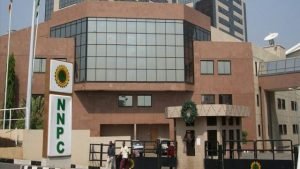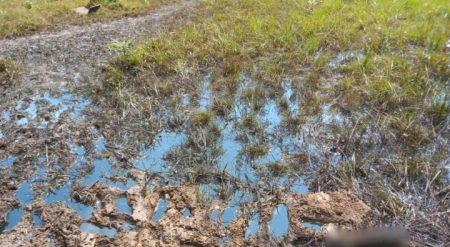…As Reps chide NNPC, CBN over refinery TAM expenses

Princewill Demian
10 May 2018, Sweetcrude, Abuja – The Nigerian National Petroleum Corporation (NNPC) has disclosed that the Federal Government is paying subsidy on petrol and not the corporation.
The NNPC also stated that it spent $396.33 million on Turn Around Maintenance (TAM) for the country’s four refineries between 1998 and 2008.
Addressing the House of Representatives Ad-hoc Committee investigating the status of the nation’s four refineries, Chief Operating Officer in charge of Refineries, Mr. Anibor Kragha, who represented the NNPC, said it was the Federal Government that is responsible for subsidy payment and not the corporation
However, in the TAM record sent to the committee, chaired by Rep. Mohammed Garba Datti (APC-Kaduna), the NNPC did not include the cost of the TAM carried out during the last administration.
In the breakdown of the expenses, NNPC stated that of total sum of $182.730 million proposed for old and new Port Harcourt refineries, $157.641 million was spent, while $151.170 million was spent on Warri refinery.
The NNPC further noted that of the $91.5 million proposed for the Kaduna Refinery, $87.517 million was spent.
As a result of this, President of the Petroleum and Natural Gas Senior Staff Association of Nigeria, PENGASSAN, Mr. Olabode Johnson, proposed two models of refinery management to end the perennial challenges facing the four refineries.
Stressing that the four refineries were “running on a faulty business model,” Johnson argued that solving the TAM is a short-term solution, thus the need to have a holistic solution that is long-term and sustainable.”
According to Johnson, some of the challenges bedeviling the refineries include: lack of operational autonomy, unnecessary bureaucracy, unsteady crude oil supply, delay in evacuation of refined products leading to shut down of refineries as well as ageing manpower leading to knowledge gap.
Johnson, who was represented by Timothy Jayeoba, member of PENGASSAN Central Board, stressed the need for adoption of public private partnership (PPP) as well as NNPC’s financing model up to 10 years.
On the status of the four refineries, Johnson who quoted the NNPC’s data, said the average functional utilisation of the refineries as at 2017 was 20 per cent.
He also proposed government ownership of 100 per cent equity alongside private sector handling the operation and maintenance.
He recommended the adoption of functional models operational in South Korea, Cote d’Ivoire, South Africa, Indonesia.
Meanwhile, the House of Representatives yesterday berated the management of the Nigerian National Petroleum Corporation (NNPC) over its inability to shed light on the monies to be expended on the Turn Around Maintenance (TAM) of the nation’s four refineries.
Chairman of the House ad-hoc committee probing into the justification for the TAM, Mr. Mohammed Garba Datti, frowned at the NNPC Chief Operating Officer (Refineries and Petrochemicals), Mr. Anibor Kragha’s inability to give accurate figure of monies so far expended on the repair of the refineries.
The committee gave the NNPC till today to provide detailed information on the spending on the four refineries, particularly on all previous TAM and other repairs as a basis to justify the fresh $1.8 billion planned expenditure on TAM.
The committee said that submission by the NNPC official fell short of expectation on monies expended on TAM in recent years. Kragha had during the hearing faulted the committee’s position that over $20 billion was spent on TAM since the inception of the refineries by successive governments.
He said there was no way $20 billion could have been spent on TAM even when the combined cost of building all the refineries was less than $25 billion.
But when prodded by the lawmakers to give the accurate figure spent on each of the refineries for TAM, Kragha failed to live up to their expectations just as he maintained that the NNPC’s new agenda was not limited to TAM but was to go for a “comprehensive rehabilitation” of the four refineries.
The committee was also piqued by the Central Bank of Nigeria (CBN) Director in charge of Research, Mr. Ganiyu Amao’s inability to provide information on the “NNPC’s TAM withdrawals and expenditure.”It also directed Amao and his team of officials to take a cue from the NNPC by coming forth with useful information on the TAM today.
Amao, who observed that Nigeria’s economy suffered reverses due to the comatose nature of the nation’s refineries, disclosed that $119.409 billion was expended on the importation of commodities into the country in five years.
He said of the amount, $36.371 billion was spent to import petroleum products within the period, adding that the bank’s ability to intervene in the foreign exchange market with a view to stabilising the naira is usually curtailed by excessive outflow of foreign exchange.



